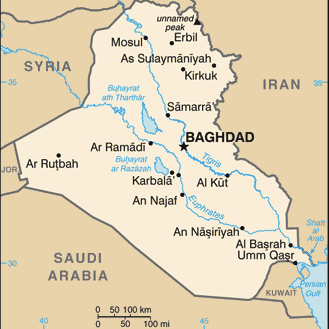My new oped in The Globalist argues that Islam isn’t inherently backward — as is mistakenly often suggested in Western media — it’s being held back by powerful donors who support extreme versions of it and make those the focus of attention. Here’s an excerpt, discussing lack of doctrinal uniformity in Islam versus the unifying force of money to extreme causes:
Sunni Islam alone has a handful of diverging schools of thought, further splintered by the separate followings of various popular current scholars.
Unfortunately the loudest and perhaps best-organized sub-segment of the sect recently seems to be the engine driving extremist groups all over the world. But even that analysis misdiagnoses and misattributes a centralization that is not really there, beyond a superficial level.
The emerging global networks of fundamentalist Sunni Islamic terrorism of the past 5, 15 and 25 years are linked in practice only because they have voluntarily associated with each other and with a specific brand of the religion.
The networks have co-opted or completely supplanted decades-old movements in places as diverse as Mali or Philippines, which had aimed to address local poverty and institutional inequalities (or obtain independence).
This voluntary association between groups, in countries from West Africa to Southeast Asia, has only been made possible by atypically centralized funding sources that provide seed money and setup advice for local franchises before they are able to become financially self-sustaining.
Most of the franchises have not been able to reach self-sufficiency and continue only by the grace of the startup funders. The rest generally continue to receive advice from the funding sources and remain associated with the other groups for brand value and the attention that comes with it.
These funders — not preachers — are the ones who really shape existing local grievances and separatist movements into a globalized, semi-unified ideology. Without them, the decentralization inherent to Islam would continue to reign.
The efforts to create a caliphate spanning the globe aren’t springing up from the grassroots of abandoned and impoverished desert populations. Rather it springs fully formed from the men bearing suitcases of cash and ideological directives on what must be done and said to keep it coming.
This money is coming from fundraisers in Qatar and Kuwait and donors in those countries, as well as in Saudi Arabia, Bahrain and beyond. If those donor networks were broken and permanently dismantled, it would break apart the emerging coalition of co-associating local movements subscribing to a hardline, Islamic globalism.
If you click through, I also cite a specific example of a very progressive, high-ranking Muslim leader in Nigeria.





